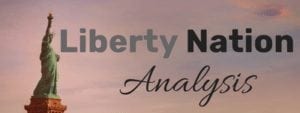As the world watches Biarritz in southern France, what are the likely outcomes of the G7 Summit? Will there be constructive trade and security negotiations, or will the whole event be sidelined, once again, into a popularity contest for a media audience determined to shape any narrative to its own ends?
 The bloc of industrialized nations that includes Canada, France, Germany, Italy, Japan, the United Kingdom, and the United States has long been more of a beauty pageant than a working group, but this year might be different. As President Donald Trump seeks to take a leading role in talks amid the China trade war, it seems almost inevitable that political posturing may have to take a back seat.
The bloc of industrialized nations that includes Canada, France, Germany, Italy, Japan, the United Kingdom, and the United States has long been more of a beauty pageant than a working group, but this year might be different. As President Donald Trump seeks to take a leading role in talks amid the China trade war, it seems almost inevitable that political posturing may have to take a back seat.
The Special Relationship
From the British side, all eyes have been on new Prime Minister Boris Johnson. With a firmly anti-Brexit UK press seemingly determined to paint any negotiations with the US as a poorer result than a continued EU trade arrangement, each conversation is being portrayed as a capitulation.
Following his meeting with Johnson, Trump commented that the two nations would be making:
“A very big trade deal, bigger than we’ve ever had with the UK and now … they won’t have the obstacle of, they won’t have the anchor around their ankle because that’s what they had. And we’re going to have some very good trade talks.”
He also suggested that Johnson was “the right man for the job,” in terms of delivering a workable deal. While this is very good news for Johnson, who can now return to the UK stating progress has been made in advance of the October 31 Brexit deadline, it appears the British press is not so enthusiastic.
Nick Dearden, director of British charity and activist organization Global Justice Now, said:
“Sadly, our own Prime Minster [sic], Boris Johnson, is at the G7 to cosy up to climate denier Donald Trump, hoping to secure one of many free trade deals which will threaten both our ability to deal with climate change, but also our food system and our public services. Johnson’s promise to protect the NHS [National Health Service] should be taken with a very large pinch of salt, because the threat to our health system will be written across a US-UK trade deal, from the new powers it give [sic] big pharmaceutical corporations to charge higher prices for medicines, to restrictions on preventing Big Tech companies from mining the NHS database.”
 These sentiments are being echoed across the media.
These sentiments are being echoed across the media.
The EU Factor
Although the G7 is an informal bloc of sovereign nations, each year the summit is also attended by representatives of the European Union. The EU holds the rights and obligations of membership yet does not have the ability to host its own meetings. Represented this year by President of the European Council Donald Tusk, the Brussels-based organization appears determined to be the moral authority of the summit.
The EU’s chief Brexit coordinator, Guy Verhofstadt, tweeted his opinion on the present trade issues, saying:
“In a world where economic superpowers like the US & China are raising barriers to trade, the strength of the EU rests on a collective response & our solidarity with one another.”
And while many would agree that barriers to trade are an overall negative, Mr. Verhofstadt is either blissfully unaware or decidedly dishonest in his choice of targets. The European Union itself imposes an estimated 12,651 import tariffs that form part of an External Tariff Wall. And unlike trade deals that are often the work of months or years of negotiation, EU tariffs are subject to daily change.
The French Connection
 Meetings with French President Emmanuel Macron were always destined to be a sore spot for the Trump administration. A long-running war of words between the two leaders has prompted the international press to lean more towards Macron’s side. He is widely lauded as a stable leader with a strong “social justice” conscience since his moral compass usually points in the opposite direction to Donald Trump’s.
Meetings with French President Emmanuel Macron were always destined to be a sore spot for the Trump administration. A long-running war of words between the two leaders has prompted the international press to lean more towards Macron’s side. He is widely lauded as a stable leader with a strong “social justice” conscience since his moral compass usually points in the opposite direction to Donald Trump’s.
Macron is spearheading the EU’s approach to the Iran Deal, also known as the Joint Comprehensive Plan of Action (JCPOA); he announced the G7 group was in agreement that steps should be taken to de-escalate tensions in the Middle East. However, President Trump denies that he has discussed the matter with the French leader. In fact, a US official made a statement saying, “The G7 countries all agreed the President’s maximum pressure campaign on Iran is having an impact, and that it should continue.”
The vast array of contradictions and supposed agreements coming out of Biarritz suggests that a skillful piece of theatre is taking place. The global audience is experiencing a narrative through a media lens of heroes and villains, while behind the scenes it seems that power plays, dominance displays, and political posturing are at the forefront of everyone’s agenda.
~
Read more from Mark Angelides or comment on this article at LibertyNation.com.



